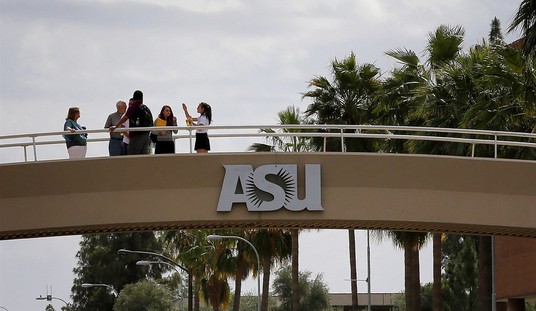I’ve found my way to one of the best Mexican restaurants in Phoenix, the nation’s fifth-largest city — a municipality that also happens to be ground zero in the immigration debate.
I’ve returned to this city — where I lived for two years in the late 1990s, back when illegal immigrants were recruited and hired and not resented and hunted. Back then, and for many decades before, Mexican immigrants had been as much a part of Arizona as cactus, torquoise, and kachina dolls.
Today, according to the shrillest of voices on the right, they’re a bunch of illegal invaders who are taking jobs from American teenagers and twenty-somethings who secretly ache to work outdoors in 115-degree temperatures.
My lunch companion is a Mexican-American and native Arizonan who is angered and disgusted by SB 1070, the state’s infamous immigration law that, before it was defanged by U.S. District Court Judge Susan Bolton, didn’t just allow racial profiling but required it. As she surveyed the menu, she wondered whether what she’s craving is worth the risk.
“I want menudo,” she said, referring to the spicy Mexican soup made with tripe, hominy, and chiles. “But, I’m not sure. Is that reasonable suspicion?”
We both laughed.
Could be. When Arizona officials were asked to produce a list of factors that would reasonably raise the suspicions of local police officers — who wouldn’t know what they were doing anyway because, after all, they’re not trained to enforce federal immigration law — they said that, among others things, you could get crossways with police by having difficulty speaking English, dressing a certain way, driving a certain kind of car, driving a car that was overcrowded, having no driver’s license, and acting nervous.
In that case, take me in, Coppers. As a U.S. citizen who was born in the United States to parents who were born in the United States with three grandparents who were born in the United States, not to mention someone who didn’t sleep through high school civics, this law makes me very nervous.
That goes for the native Arizonan, too, who asked not to be identified because she works for a state university.
“The racists are out of the closet now,” she said. “And more of them are going to come out in the future. Just watch.”
Not every Mexican-American in Phoenix, or in Arizona, agrees with her. Not everyone thinks this law — which some have dubbed “The Mexican Removal Act” — sprang from racism. But, I would imagine, many of them do.
Recent polls show about 55 percent of Arizonans support SB 1070, which is down from 70 percent a few months ago. But along racial lines, the fault lines are obvious. More than 70 percent of whites support the law; more than 70 percent of Latinos oppose it.
It didn’t have to be this way. There are enough fractures in the Latino community that it would have been possible to come up with a measure that split the community in half — Latino immigrants on one side, and Latino natives on the other. In that scenario, few natives would have come to the defense of the immigrants. But the architects of SB 1070 weren’t that smart, and they clearly didn’t have that sophisticated an understanding of the community they were running off.
So they cast the net much too wide. They twisted the legal term “reasonable suspicion” to the point where, in the real world of policing, the first hint that someone is in the country illegally will likely be skin color. And when there’s the possibility that police might ask for papers from those with dark skin, shouldn’t Mexican-Americans with dark skin be concerned and outraged?
Absolutely, said the young woman.
“It comes down to who you are at your core,” she said. “Logic goes out the window and you choose sides. A lot of people I know who were born here, and whose parents and grandparents were born here, are saying: ‘(Expletive) this!’ Now it’s affecting everybody.”
That sounds right. Wherever I go here, and whomever I talk to in the Latino community, I see unity. A Latina Republican born in Arizona who has stopped giving money to her party in protest of its support for the immigration law. An immigrant from Mexico who became illegal when he overstayed his visa and now won’t leave the house except to go to work. What do these people have in common? Not much. They live in the same city, but they’re living different lives. And yet, now, there is one thing: yhey both abhor SB 1070, and they’re determined to hold accountable the politicians who wrote it, passed it, and are now trying to benefit from it.
Judge Bolton struck down those portions of the law that were most troubling and represented the greatest encroachment on federal authority. But the rest of the measure went into effect at the end of last month as scheduled. This battle is just getting started.
The waitress came over to the table to take our order. Throwing caution to the wind, my lunch companion gave into her craving.
“I’ll have the menudo,” she said, “with corn tortillas.”
Hey, every once in a while, you’ve got to take a stand. But you don’t have to stand alone.
“Make it two,” I said.









Join the conversation as a VIP Member